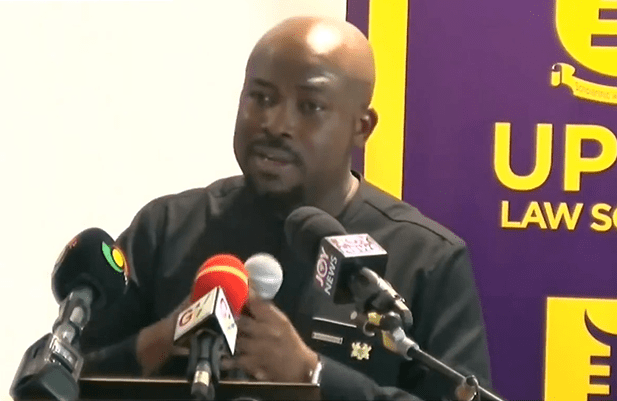Chief Executive of the Chamber of Bulk Oil Distributors (CBOD) says the huge socioeconomic impact that will be felt following the imminent transport fares hike by 30% is as a result of poor economic policies by successive governments.
According to Senyo Hosi, whereas the government will never be able to control the rise and fall of fuel prices, what it could have done was to provide structures that would have cushioned Ghanaians from the devastating impact.
Speaking on JoyNews’ PM Express, he stated that with the near ₵7billion the government accrued as revenue annually from the petroleum sector alone, the government could have invested it into rail infrastructure among others for the country.
“The monies we have actually spent, the revenue we have generated from petroleum in the last ten years …is been so much but there has been very weak policy planning by successive governments. What we’re suffering today is a function of weak policymaking by successive governments.
“What I would have expected governments to have done for the revenue that we have here, because we know there will definitely be a future problem, what we should rather have been doing was invest in diversifying and deepening our mass exportation sector which would make the implication for these minimal increases very very little,” he said on Monday.
He added that “I was on your set the last time and I said it makes no sense that in this country after 65 years of independence thereabout we can’t boast of a rail that’s connecting Dodowa all the way to Circle, connecting anywhere around Ada through Tema all the way to Kasoa?
“The nexus, we’ve not been able to connect anything. Go to Kumasi, it’s a disaster. We all have to depend on the roads; we all have to depend on our trotros which are more expensive to run.”
He explained an investment in such infrastructure would have placed more power in the hands of government to control how much brunt the Ghanaian people would feel from the fossil fuel price hikes and now the transport fares hike.
“You know the implications are less, they’re minimal, they’re more within the control of government,” he said.
Meanwhile, he revealed that Ghana loses about a billion or more to leakages in the revenue collection process, annually.
“Government today is raising close to ₵7 billion in petroleum taxes. It’s supposed to be more. There’s a lot of leakages that’s going on I think possibly another billion and a half to two billion could be generated.
“Petroleum accounts for around 12% of our total domestic tax revenue. It’s a very important tax-generating feature in our tax or our physical structure. Government sees the revenue side and sometimes loses sight on the social implications for it,” he said.
Latest Stories
-
Bawumia joins thousands in Kumasi for burial prayers for Ashanti Regional Imam
2 hours -
Blue Gold Bogoso Prestea Limited challenges government actions in court
2 hours -
Patrick Atangana Fouda: ‘A hero of the fight against HIV leaves us’
3 hours -
Trinity Oil MD Gabriel Kumi elected Board Chairman of Chamber of Oil Marketing Companies
4 hours -
ORAL campaign key to NDC’s election victory – North America Dema Naa
4 hours -
US Supreme Court to hear TikTok challenge to potential ban
4 hours -
Amazon faces US strike threat ahead of Christmas
5 hours -
Jaguar Land Rover electric car whistleblower sacked
5 hours -
US makes third interest rate cut despite inflation risk
5 hours -
Fish processors call for intervention against illegal trawling activities
5 hours -
Ghana will take time to recover – Akorfa Edjeani
5 hours -
Boakye Agyarko urges reforms to revitalise NPP after election defeat
6 hours -
Finance Minister skips mini-budget presentation for third time
6 hours -
‘ORAL’ team to work gratis – Ablakwa
6 hours -
Affirmative Action Coalition condemns lack of gender quotas in Transition, anti-corruption teams
6 hours

